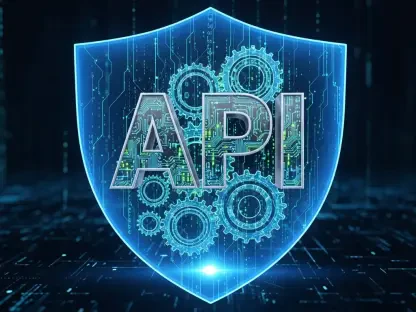Introduction
Imagine a world where booking a flight or managing complex workflows happens seamlessly without human intervention, all thanks to AI agents handling these tasks with precision. This scenario is no longer a distant dream but a rapidly evolving reality in the AI agent industry, which is transforming how digital interactions occur across sectors. With the market for AI-driven automation expanding at an unprecedented pace, the emergence of specialized infrastructure to support these agents has become a critical need, setting the stage for innovative players like Alpic to make their mark with groundbreaking solutions.
The AI agent landscape is bustling with potential, as these systems promise to redefine efficiency in industries ranging from travel to healthcare. Amid this growth, challenges such as scalability and security persist, prompting the need for robust protocols and platforms. This report delves into how Alpic, a Paris-based startup, aims to address these issues through its focus on the Model Context Protocol (MCP), potentially reshaping the foundation of AI agent interactions.
Understanding the AI Agent Landscape
The AI agent industry has witnessed remarkable growth, driven by the increasing demand for automation in tasks like travel booking, customer service, and workflow management. These agents, powered by advanced machine learning models, are becoming indispensable tools for businesses seeking to enhance productivity and reduce operational costs. Their ability to handle repetitive and complex processes autonomously positions them as a cornerstone of digital transformation.
Key players in this space, alongside technological advancements in natural language processing and decision-making algorithms, are pushing the boundaries of what AI agents can achieve. The introduction of emerging standards like the Model Context Protocol (MCP) by Anthropic, now adopted by major industry leaders, marks a significant shift toward structured and secure agent interactions. This protocol aims to standardize how AI agents connect with external services, addressing inefficiencies in current methods.
Beyond operational tasks, AI agents are poised to transform digital interactions on a broader scale, impacting industries such as e-commerce, logistics, and even personal assistance. Their integration into everyday systems is not just a trend but a fundamental change in how services are accessed and delivered. As this landscape evolves, the need for dedicated infrastructure to support these agents becomes increasingly apparent, highlighting the importance of innovative approaches.
The Rise of MCP and Its Market Impact
Key Trends Shaping MCP Adoption
The Model Context Protocol (MCP) has emerged as a pivotal open standard, initially introduced by Anthropic and now gaining traction among leading AI companies. This protocol facilitates secure and structured interactions between AI agents and external services, moving away from outdated practices like website scraping, which often prove unreliable. MCP represents a shift toward agent-first protocols, prioritizing seamless integration over makeshift solutions.
Several trends are accelerating MCP adoption, including a growing demand for secure AI-service interactions and the recognition of limitations in existing human-centric interfaces. Businesses are increasingly seeking ways to expose their services to AI agents without compromising data integrity or operational efficiency. MCP addresses these concerns by offering a standardized framework that ensures reliability and fosters trust in automated systems.
Moreover, MCP opens new avenues for organizations to integrate AI agents into their operations, reducing inefficiencies and enabling smoother digital transactions. By providing a consistent method for agent communication, it eliminates many of the operational bottlenecks that have hindered scalability in the past. This trend signals a broader movement toward redefining how online services interact with automated systems.
Market Growth and Future Outlook
The market for AI agent infrastructure is experiencing robust expansion, with current estimates valuing it in the billions and projecting significant growth over the next few years. As MCP gains wider acceptance, industry analysts anticipate a surge in demand for compatible platforms, potentially doubling the market size by 2027. This growth trajectory underscores the protocol’s role in shaping digital ecosystems.
Early adopters of MCP have reported improved performance metrics, including faster transaction times and enhanced security in agent interactions. Forecasts suggest that agent-first protocols could become integral to most online services within the coming decade, mirroring the transformative impact of foundational internet standards. The data points to a future where MCP-compatible solutions dominate the AI infrastructure space.
Looking ahead, the expansion of platforms supporting MCP is expected to accelerate as more businesses recognize the value of tailored agent interactions. Indicators from pilot programs and initial deployments highlight a positive reception, with scalability and integration ease cited as key benefits. This momentum positions MCP as a potential game-changer in the broader AI landscape.
Challenges in Building AI Agent Infrastructure
Developing infrastructure for AI agents, particularly under agent-first systems like MCP, presents significant technical and operational hurdles. One primary challenge lies in transitioning from human-centric interfaces to those designed specifically for AI interactions, which often requires a complete overhaul of existing systems. This shift demands substantial resources and expertise to ensure compatibility and functionality.
Scalability and reliability further complicate the adoption of such infrastructure, especially when relying on retrofitted solutions not originally built for AI agents. These systems often struggle to handle large volumes of automated interactions, leading to performance bottlenecks and increased costs at scale. Addressing these issues necessitates innovative approaches that prioritize agent-specific design from the ground up.
Strategies to overcome these obstacles include the creation of specialized platforms, such as the one Alpic is developing, which focus on simplifying deployment and management of MCP servers. By offering tools tailored to agent needs, these platforms aim to mitigate the complexities of integration and ensure consistent performance. Such solutions could pave the way for broader acceptance of agent-first systems across industries.
Regulatory and Security Considerations for MCP
The regulatory landscape surrounding AI agents and protocols like MCP is complex, with data privacy and compliance requirements at the forefront of policy discussions. Governments and international bodies are increasingly scrutinizing how AI systems handle sensitive information, mandating strict guidelines to protect user data. These regulations shape the design and implementation of agent-first infrastructure.
Security remains a critical concern, with MCP implementations requiring robust authentication mechanisms and fine-grained access controls to prevent unauthorized access. Observability tools are also essential to monitor agent interactions and ensure transparency in automated processes. These features are vital for maintaining trust and meeting the stringent standards set by regulatory frameworks.
As policies evolve, they could significantly influence the pace of MCP adoption and the broader shift toward agent-first infrastructure. Potential changes in data protection laws or cybersecurity mandates may require platforms to adapt quickly, impacting development timelines and costs. Staying ahead of these regulatory shifts will be crucial for companies aiming to lead in this space.
The Future of AI Agents and Agent-First Protocols
Envisioning the long-term role of AI agents reveals a future where they become central to digital interactions, potentially rivaling the foundational impact of protocols like HTTP. MCP could serve as the backbone for this transformation, enabling a new era of automated services that are both efficient and secure. This vision hinges on the continued evolution of agent-first systems.
Emerging technologies, coupled with changing business needs and consumer expectations, are likely to drive the adoption of these protocols. As organizations seek more personalized and instantaneous services, the demand for AI agents capable of navigating complex digital environments will grow. This trend underscores the necessity for infrastructure that can support such advancements.
Alpic stands at the forefront of this future, leveraging innovation and strong investor confidence to shape the global market for AI agent infrastructure. Factors such as strategic partnerships and expanding market dynamics will play a key role in determining its impact. The company’s commitment to simplifying agent integration positions it as a potential leader in this evolving field.
Conclusion
Reflecting on the journey of AI agents and the rise of MCP, it is evident that a paradigm shift has taken root in the digital landscape. Alpic’s mission to build a pioneering cloud platform for MCP-native solutions has addressed critical gaps, setting a benchmark for others in the industry. The $6 million pre-seed funding round, backed by prominent investors like Partech, has validated the startup’s approach and underscored the market’s readiness for change.
Looking ahead, businesses are encouraged to explore early integration of AI agents using platforms tailored for agent-first protocols, ensuring they stay competitive in a rapidly evolving environment. Stakeholders need to prioritize security and compliance while investing in scalable infrastructure to support future growth. Alpic’s upcoming public beta launch offers a tangible opportunity for organizations to test and refine their strategies in this space.
The broader industry must consider fostering collaboration between developers, regulators, and technology providers to address lingering challenges in adoption. By focusing on standardized protocols and innovative tools, the ecosystem can unlock the full potential of AI-driven interactions. This collective effort promises to redefine how digital services operate, paving the way for a more automated and efficient future.









